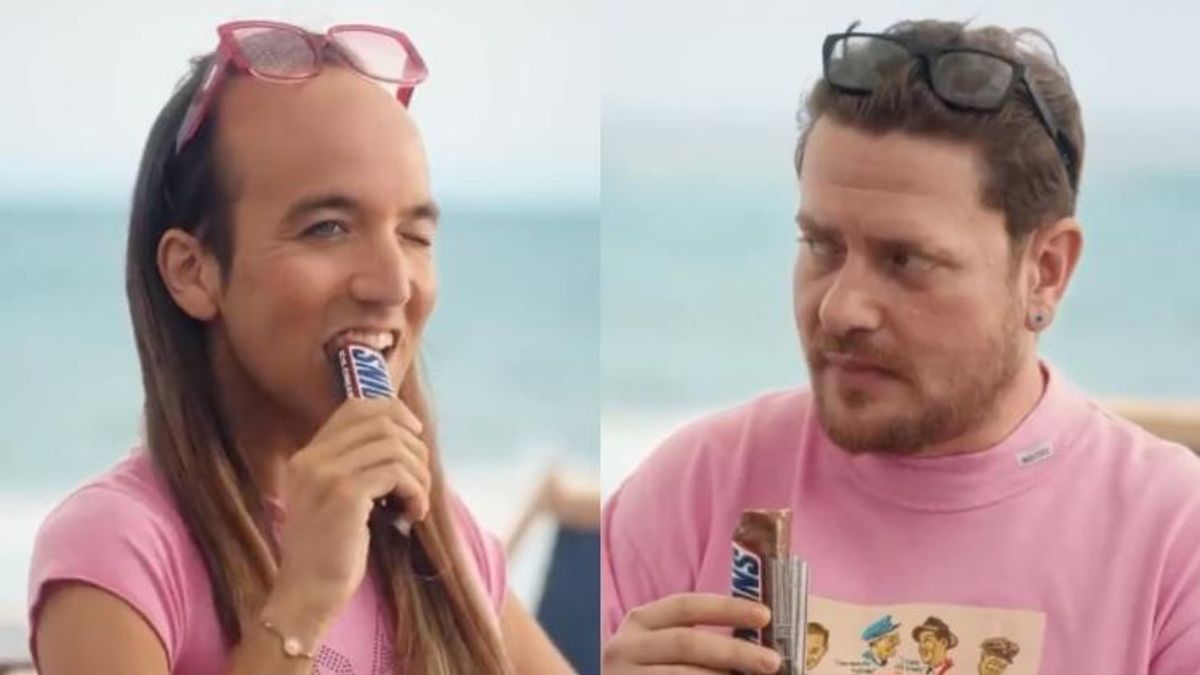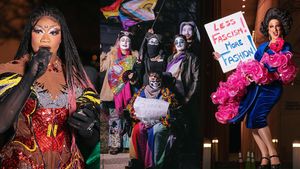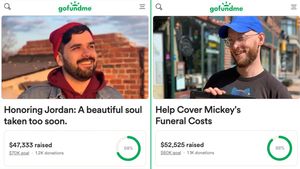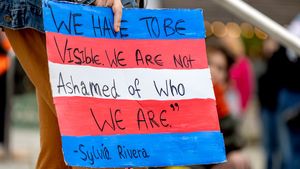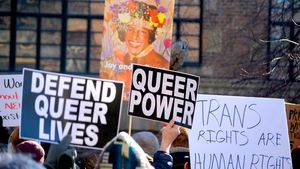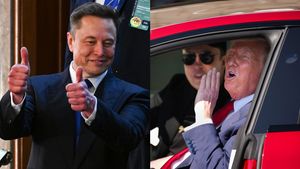Snickers Spain is in some hot water after running a controversial ad campaign that many are calling homophobic.
The 20-second clip -- which has officially been pulled from airing but was screen-captured and reposted by Twittter user @gamomena -- starts off with a long-haired, skinny, effeminate man (played by Spanish blogger and media personality Aless Gibaja), hanging out at a beachside restaurant with a friend and ordering a "sexy orange juice with vitamins A, B and C" from a waiter.
After some confused looks are exchanged, the waiter serves Gibaja's character a Snickers ice cream bar, and after one bite, he magically transforms into a broader, short-haired, more masculine-presenting man with a markedly deeper voice.
"Better?" the friend asks.
"Better," the bearded man replies, with Snickers' trademark catchphrase "you're not yourself when you're hungry" flashing on-screen.
The entire commercial absolutely reeks of femmephobia, and (rightfully so) has been receiving backlash from queer people and organizations all over Spain.
"It is shameful and regrettable that at this point there are companies that continue to perpetuate stereotypes and promote homophobia," the country's LGBT State Federation said in a Twitter statement. "If you need some training for next time, here we are, Snickers."
"Hello, @snickers_es," Spanish politician Inigo Errejon said in his own Twitter response to the homophobic Snickers ad. "I don't like stigmatizing and laughing at the pluma (a Spanish term used to describe effeminate, gay men). Even less so in a summer in which attacks on LGTBI people multiply."
Shortly after the controversy started making the rounds on the internet, the official Spanish Snickers Instagram account posted an official statement, apologizing for the major gaffe.
"At the Snickers brand we take the rights of equality and inclusion very seriously and we believe that anyone has the right to show themselves as they are," the statement (translated from its original Spanish) reads. "From Snickers we want to apologize for the misunderstanding that our new advertising campaign may have caused."
"At no time has it been intended to stigmatize or offend any person or group. In this specific campaign, the aim was to convey in a friendly and casual way that hunger can change your character. Again, we regret any misunderstandings and, in order to avoid spreading a message that could be misinterpreted, we will immediately proceed to remove the campaign."
RELATED | Russian TV Hosts Mocked LGBTQ+ Olympians With Wigs, Slurs
